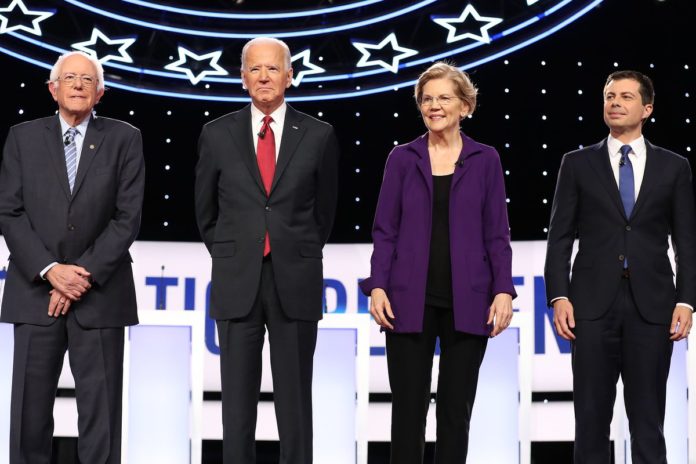![]()
A prevailing media narrative about the Democratic primary is the existence of two different wings of the party—moderate and progressive. They are both in the middle of attempting to determine who is the best on each side, and the two winners will eventually have an ideological battle before the general election.
This narrative serves as the basis for the New York Times endorsement of candidates Amy Klobuchar and Elizabeth Warren. The idea is that both represent the best moderate and progressive candidate respectively.
During my time in Iowa with GUPolitics, I met many people who broke that narrative. A Klobuchar supporter with a second choice of Bernie, a Warren supporter ready to realign to Buttigieg, and Yang supporters prepared to back Biden. Under the Two Lanes theory, these people do not exist.
In my experience, I’ve found the reason people back a certain candidate is not for their policy, and not for their progressive/moderate ideology, but rather for who they are. Over and over again, Sanders supporters emphasized his consistency as a major reason why they voted for him. Buttigieg supporters mentioned his voice and his message of unity. Klobuchar supporters mentioned the need for a woman in office before mentioning her electability as a Senator from the Midwest. Warren supporters echoed the need for a woman in office, while stressing how much hope she gave them.
A common thread I noticed when I asked these Caucus-goers why they were caucusing for their candidate, was that they never mentioned their candiadate’s progressive/moderate stance first, and they all committed to supporting whoever the nominee was. The ideology debate comes crashing down when you realise the caucus is a battle of personalities and not ideologies. So in the run-up to New Hampshire, keep that thought in mind.
Kelvin Doe (COL ’23) is the Managing Editor for Bipartisanship.
Disclaimer: The views and opinions expressed in this article are those of the author(s) and do not necessarily reflect the official or personal position of the Editorial Board, Contributors, or Business Staff of The Georgetown Review.












